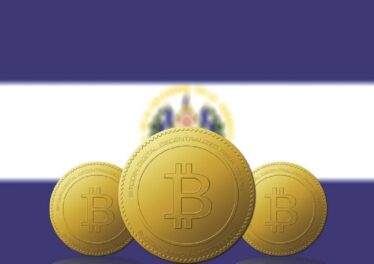On June 5, during a Bitcoin conference in Miami, the president of El Salvador Nayib Bukele took the financial and economic world by storm, announcing Bitcoin would become legal tender in the country.
The announcement left even Bitcoiners in disbelief because it only took Bitcoin twelve years – since its inception – to shake up a monetary system that has been in place for over a hundred years, while also replacing – or at least combining with – gold as a standard store of value.
The Bitcoin Law was passed by the Legislative Assembly of El Salvador on June 9, 2021, with a majority of 62 votes out of 84. As part of the law, foreigners can gain permanent residence in El Salvador if they invest 3 bitcoins in the country.
September 7, is exactly 90 days after the publication of the law in the official gazette and the day the law comes into effect.
The government has created a $150M fund (~BTC2920 at the time of writing), to support the implementation of the law. From the distribution of 200 Bitcoin ATM machines across the country to the issuance of $30 in BTC to each of the people of El Salvador to get them started with the new currency, many are the measures and resources needed to accomplish the mission. The money is available as of September 7 by registering to the government-issued Chivo custodial wallet, which they won’t be compelled to use, the president said.
What does a legal tender imply?
People will be able to pay taxes, bills, groceries, debts, and all types of expenses with Bitcoin. They will continue to use the dollar, or Bitcoin, as an alternative. In most cases, bitcoin will facilitate these payments, allowing easy and quick execution, unlike traditional cash payments. All businesses and providers will have to comply and make sure they offer payment in the currency.
In El Salvador, which has a population of 6.454 million (2019), 70% of the population do not have access to a bank account, and they can only rely on cash payments mainly obtained through remittances, which might be cumbersome for the majority. Paying for an electricity bill, for instance, could take hours if it has to include traveling to the nearest town to execute the payment. With a Bitcoin wallet, that can now be done almost instantaneously.
The road to its implementation is and will be, paved with unpopular decisions, bad actors, criticism, opposition, maybe sanctions, and frauds.
However, there’s no doubt that this is the beginning of something huge.
How did this even happen and how did it start?
The story is quite well known by now.
In 2019, an anonymous donor from California granted about 12 bitcoins to the local community in order to promote and implement the usage of the cryptocurrency.
A group of bitcoiners and beach lovers who had already settled in El Zonte, one of El Salvador’s most popular beach towns, utilized the donation to create Bitcoin Beach, a so-called citadel-by-the-sea, where bitcoin became the drive for a sustainable economic ecosystem.
I spoke to Roman Martinez, one of Bitcoin Beach’s founders, who told me the story in detail:
“Long before Bitcoin, and under Mike Peterson’s guidance, Jorge Valenzuela, Hirvin Palma, and myself started local educational programs on technology, monetary systems, and financial education.
We were born and we lived in a little fishing village where our main activity was surfing as kids. We knew no technology or financial systems. Our dream was to leave the country and go to the USA to find a job and send money back home.
This was the reality until Mike and some other visitors here in El Zonte taught us what it meant to dream of a different life and fight for it. Helping others pursue the same dreams through education, became our scope in life, even before the appearance of Bitcoin.
Education, recreation, spirituality, and empowerment became the four pillars we started working on”.
Was it difficult for the locals to digest an entirely new monetary system like bitcoin?
“At the beginning, it was difficult because for the first time they were learning how to store money and how to perform digital transactions. With Bitcoin, it all started to change. From having no bank access, they now had a bitcoin digital wallet.
We aim at educating people, we spend a lot of energy and resources on education and to prepare future generations on one of the most important technologies we have experienced in our lifetime”
According to the World Bank, in 2019 a fifth of El Salvador’s GDP was linked to money sent back from workers abroad, mainly the USA. Remittances indeed make up around 20% of the country’s GDP with more than 2 million Salvadorans living outside the country, while keeping close ties with their place of birth. President Bukele has pushed Bitcoin adoption as a way to facilitate remittance payments from Salvadorans living abroad, sending back more than $4bn each year.
El Salvador leads the region in remittances per capita, with inflows equivalent to nearly all export income. Remittance will be one of the biggest drives in bitcoin adoption in other countries that have a similar economy to El Salvador. Indeed, Central American nation states are eagerly waiting to see if El Salvador’s adoption of Bitcoin as a parallel legal tender will cut the cost of remittances, an important source of income for millions of people, according to the region’s development bank.
An attempt to move away from the US dollar dominance
The US dollar has been the official currency of El Salvador since 2001 when it was adopted to face the continuous devaluation of the previous colon. However, the acquisition of the American dollar basically meant that the country had officially given up control over its monetary policy.
Overall, the system has worked fine for El Salvador, but recently things have taken a different turn when, in an effort to reduce the economic effects of the coronavirus pandemic, the US Federal Reserve drastically increased the circulation of U.S. dollars by 32% on two different occasions, in May 2020 and February 2021. A move that was unprecedented in modern US history.
While the Fed’s extraordinary measures succeeded in pumping more cash into the pockets of US financial institutions, the stock market, and other fields of the US economy, the same was not true for El Salvador and the other two dozen countries and territories that use the US dollar as a currency, including Ecuador and Zimbabwe. Their banks did not receive an injection from the Fed but did lose purchasing power instead, due to the US monetary inflation.
President Bukele’s proposal affirms that “central banks [like the US Federal Reserve] are increasingly taking actions that may cause harm to the economic stability of El Salvador…in order to mitigate the negative impact of central banks, it becomes necessary to authorize the circulation of a digital currency with a supply that cannot be controlled by any central bank and is only altered in accord with objective and calculable criteria.”
The supply of bitcoin is capped at 21 million units, making the digital currency immune to quantitative easing policies that affect the US dollar and other “fiat” currencies.
Local Investments
The new Salvadoran bitcoin ecosystem has already sparked the interest of numerous cryptocurrency-related companies, including businesses involved in mining, internet supply, payment systems, wallet creations, and so forth.
“Investments have started to flow in El Salvador, and we have pride in having educated so many on the bitcoin economy, technology, and monetary systems that those companies investing in the country will be able to find local professionals and resources that we have helped grow and develop,” Roman told me. “Our biggest challenge is now to educate the whole country, but people appreciate that Bitcoin has allowed many to remain in their lands and pursue their dreams closer to their families and friends. We’re expecting a massive injection of investments in the upcoming months, and they will benefit from local professionals who understand and can operate within the technology framework”
There’s no doubt that a new influx of money and local talents will drive up the job market. This will only increase in the coming months and years, further thriving an economy that is already ahead of other central American countries. Will this model be adopted on a wider scale across the less developed countries?
I asked Roman about the recent protests against the bitcoin law and why he believes they are against it:
“I am not sure, to be honest, but any new regulation, law, will likely meet some opposition. The president has tried to explain that bitcoin should be first seen as an inclusive technology that facilitates payments and remittances. However, some critics are always bound to find downsides”.
“The important thing is to focus on educating the people, and that’s what we are doing. We started in El Zonte and we are now moving our projects to other communities also, like Punta Mango. We have to be ready to educate the whole country. This will be our main challenge in the coming months and years”
Let’s take a look at the possible hurdles and challenges the country will face in view of the Bitcoin Law.
Energy Consumption
One of the most popular criticisms of the Bitcoin law, and of Bitcoin in general, is its energy consumption and CO2 emissions produced by the mining facilities.
Currently, El Salvador derives 64% of its electricity from renewables, namely hydropower, solar and geothermal. The country has over twenty volcanoes and the geothermal power generation capacity in El Salvador today lies at 204 MW with around 110MW of potential additional geothermal capacity either planned or under development.
The operation and development of the geothermal resources of the country is held by the state-owned company LaGeo. President Bukele has instructed LaGeo to offer facilities for bitcoin mining with very cheap, 100% clean, 100% renewable, zero emissions energy from the country’s volcanos.
“Our engineers just informed me that they dug a new well that will provide approximately 95MW of 100% clean, 0 emissions geothermal energy from our volcanos”, tweeted the president on June 9.
Although some local energy experts say that all geothermal activity so far has been in the range of only 20-35MW, which raises eyebrows on how this new well could instead provide 95MW.
Money Laundering Issues
Alongside the environmental impact of bitcoin mining, another major criticism bitcoin frequently undergoes is the risk of money laundering practices that supposedly come with its lack of transparency.
In August, El Salvador published two documents that highlight the necessary measures taken for the implementation of the currency, and the necessary technical regulations including how financial institutions and banks should offer Bitcoin services to their customers.
Banks will be required to provide detailed due diligence and checks on El Salvador’s financial institutions to avoid tax evasion, money laundering, and terrorist financing. Financial institutions will also be required to ensure customers go through the standard Know-your-customer (KYC) verification process. They also need to implement anti-money laundering (AML) procedures when dealing with Bitcoin.
In terms of money laundering, Bitcoin is no different from any other currency. Some argue that it may even be better at tracking down illicit transactions due to the transparency of its public ledger which makes it easy to detect any big lump of money and investigate it in case any suspicion arises over its nature.
Internet Access
Only 57 percent of the population in El Salvador has internet access, with a ratio of barely one in 10 people in rural areas. In order to make bitcoin accessible to everyone, including rural areas, Bukele has ventured the idea of building a network of satellites to improve coverage, but that will obviously require time and major resources to implement.
Bitcoin and blockchain global leader Blockstream is in talks with the country to provide a satellite infrastructure to help rural Salvadorans connect to the internet, and thereby to the Bitcoin network, in places where land-based connectivity is poor. It might turn out to be a model of internet penetration throughout the world.
Bitcoin tools for the locals
Alongside the government-backed Chivo wallet, Zap Solutions CEO Jack Mallers, who was one of the main actors in the foundation of the legal tender, created Strike, a payments application that uses Bitcoin, the Lightning Network, and blockchain technology to offer instant and free payments globally.
The application is currently only available in the USA and El Salvador with the aim to mainly serve deprived areas in the future.
The Bitcoin Beach Wallet is the official wallet of the Bitcoin Beach project and has so far been the main bitcoin tool the locals could use to transact with the cryptocurrency. It’s been a real game-changer for many businesses that could never qualify for the merchant account status necessary to accept credit cards.
El Salvador will also raise the popularity of the Lightning Network, which has so far been shadowed by its “experimental features.” While in the rest of the world the LN is still little used and mainly for testing purposes, in El Salvador it became a necessary means for little purchases that would not be ideal to make with the bitcoin main chain.
When COVID-19 hit, the community became more open to learning about Bitcoin out of necessity. To maintain social distancing, Bitcoin Beach set up a Facebook group with “how-to” videos to continue its education efforts. With the simple use of the smartphone, everyone can connect to a bitcoin wallet, order groceries, and pay online. The groceries were from the start delivered by volunteers or shop assistants to avoid disruptions and extreme difficulty to the elderly and the less fortunate population.
Bitcoin Beach has worked to show locals the benefits of receiving funds in BTC from relatives in the USA, instead of using expensive and inconvenient services like Western Union.
Conclusion
All eyes are on El Salvador today and in the near future.
Especially the neighboring countries and those who have their currency pegged to the dollar will closely observe the developments of the legal tender, mainly with regards to remittances which are a major slice of their local economy.
The El Salvador experiment has officially started and the world is watching and wondering if another country will follow suit soon, and which it will be.
Cuba has recently expressed interest in the cryptocurrency sphere and is apparently exploring the possibility of replicating what El Salvador did with Bitcoin.
Will Fidel island be the next Bitcoin legal tender?
- Bitcoin Falls to $65K as Mt. Gox Transfers $2.8 Billion BTC to External Wallet
- News of Marathon Digital’s $138 Million Fine for Breach of Non-Disclosure Agreement Triggers a Bearish 2.5% of Its MARA Stock
- Are $530M Bitcoin ETF Inflows a Blessing or Caution?
- Metaplanet Teams with Hoseki for Real-Time Bitcoin Holdings Verification
- 10 Best Meme Coins To Invest in 2024
- Building Secure Blockchain Systems: An Exclusive Interview with ARPA and Bella Protocol CEO Felix Xu
- Building The “De-Facto Crypto Trading Terminal”: An Exclusive Interview with Aurox CEO Giorgi Khazaradze
- Building a New Global Financial System: An Exclusive Interview With Tyler Wallace, Analytics Head at TrustToken
- “Solana is the Promised Land for Blockchain” — An Exclusive Interview with Solend Founder Rooter
- El Salvador: Where The Bitcoin Revolution Begins With A Legal Tender

 Why Trust Us
Why Trust Us







